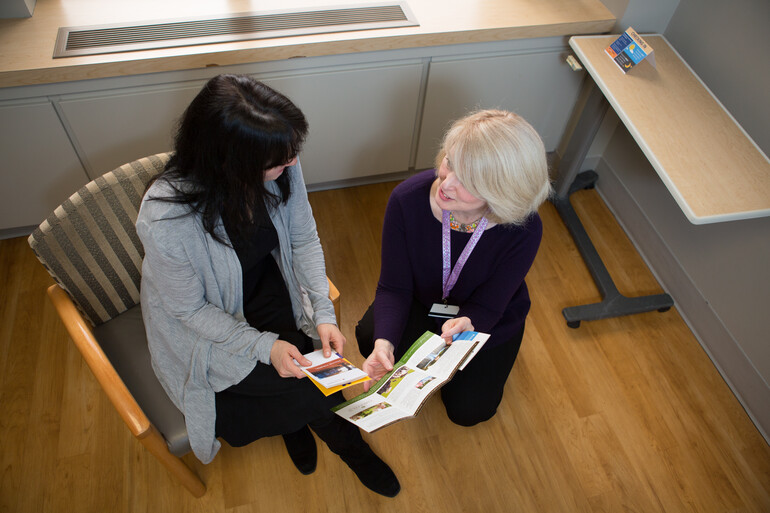Cold, dim winter days can drive college students indoors more often than during fall and spring quarters. The isolation and inactivity combined with the stress and pressure of college life can result in depression and anxiety. The Walla Walla University Counseling and Testing Center offers many ways to support students in coping with these concerns and improving their mental health.
Most students who come to the center do so because of anxiety or depression. “Having someone that you can just be with, that you can talk to, seems to be one of the most helpful things,” says Michelle Naden, center director. “It doesn’t have to be a professional. It can be a really good friend, a resident assistant or a teacher. Sometimes people just need people they can trust to talk to honestly about all that is going on.”
The center’s four counselors offer walk-in and scheduled counseling sessions. They also offer groups through the chaplain’s office that are focused on mental health and self-care. The center has started a student health and wellness program that is directed by Carrie White, Counseling and Testing Center associate director, and offers many options for students including discussions about stress management, coping with loss and how to have honest conversations. For students who like to focus on the connection between body and mind, they facilitate classes that focus on movement and breathing to cope with stress and anxiety.
Students can receive up to 10 counseling sessions per quarter. Ten sessions are often enough to assist the student through their current situation and give them sufficient tools to move forward on their own. The average number of sessions is six or seven. If it is evident during their assessment interview that a student will require more consistent support, they may be referred to a counselor in the community.
“If we say that we love our students and we don’t attend to this very basic need, our words are hollow,” says Doug Tilstra, vice president for student life. “We’ve got some students who are really hurting, and if we don’t get them plugged into some resources, then who knows what may happen to them. One piece we are working on is how we help students who are using some really dangerous ways of coping to learn some healthy ways of coping.”
Tilstra says he wants students to know they're not alone. “This is not a reflection on your worthiness or your value as a person," he explains. "Reach out. Get help. You don’t need to go through this by yourself, and there are people who care about you. There are resources on this campus, and there’s no need to go through this by yourself.”
To learn more, visit www.wallawalla.edu/counseling.











